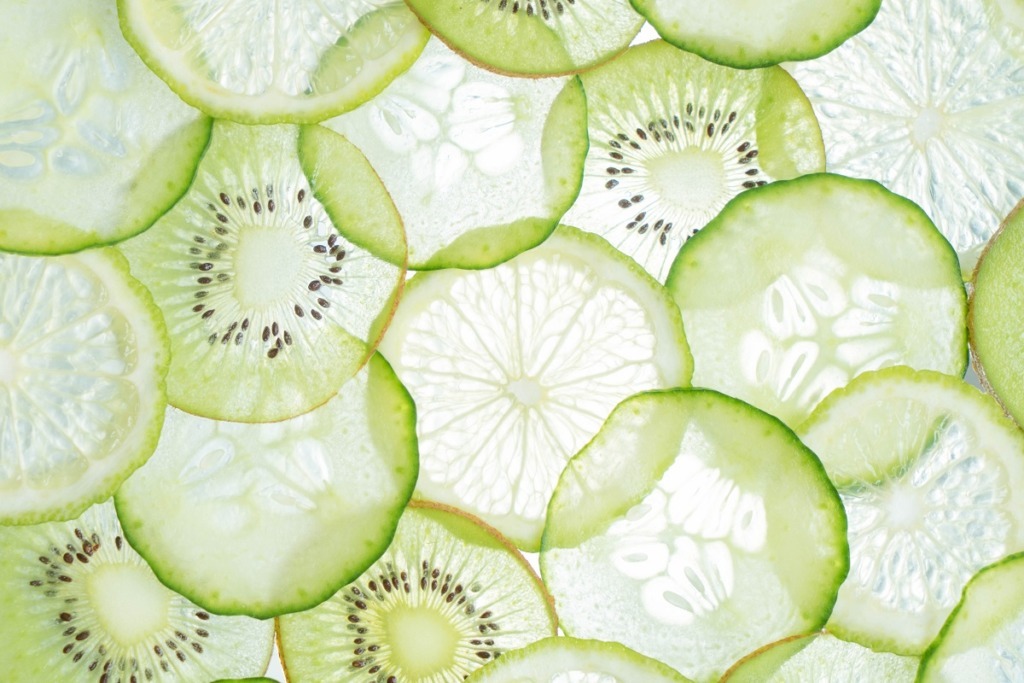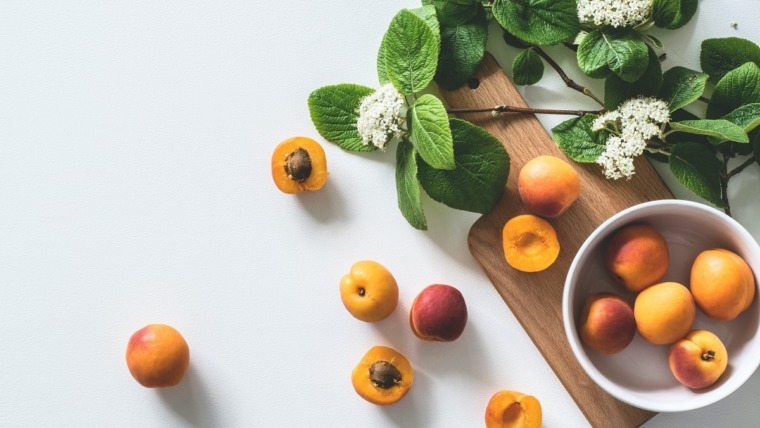Creating a balanced diet

Written by Adriana Krueger
Is it really necessary? Can’t I just eat what I want? Do I really have to pay attention to my diet so that I can control my life and my health? The advice of many experts: eat what your heart desires, but be smart about it because a healthy lifestyle starts with your diet!
Eating is one of the most basic things in the world. Eating enables us to enjoy life. It gives us the energy to do things, to have fun, to work...to simply live! Is eating really the most basic thing in the world, because lots of mistakes can be made when it comes to a balanced diet. An unhealthy diet could even be dangerous for the body.
Fast food on the fly, ready-made products from the refrigerated shelf or sweets for in between. Around us, there is a multitude of convenient and tasty food offers, which of course seduce you to enjoy even beyond your hunger. But what about the sense and nonsense of such a diet? Is it really enough just to have something in your stomach, to eat anything that catches your eye?
It is now undisputed that our western eating style can favour the occurrence of a whole range of serious illnesses and thus shorten life. Those who eat a balanced diet, on the other hand, create an important basis for their health and well-being. Whether bread, milk, meat, fruit or vegetables - the right amount is important. You can feel healthy nutrition: people who eat properly feel fresh and full of energy both mentally and physically. It is now recognized as undisputed that the wrong food has a decisive influence on the development of diseases. The earlier you start with a healthy diet the better - and it's never too late for a change.
Only with the optimal interaction of all nutrients can we feel good and stay healthy over the long term. In this country, we usually consume too many high-calorie foods - the result: our energy balance is no longer correct because the daily calorie intake exceeds the body's energy consumption. The outcome is obesity, and that is the cause of many diet-related health problems. Fatty energy bombs such as sausage, meat and cheese favour this, as do desserts and lemonades. Sooner or later our organism literally gets out of hand and becomes ill.
If you replace processed meat and „bad“ fat with fruit, vegetables and grains, you have other advantages in addition to a reasonable energy intake: Numerous micronutrients contained in these foods have a particularly positive effect. Some of these substance classes have an important protective effect on our bodies. It is above all the vitamins and secondary plant substances, in addition to valuable fibre and minerals. Year after year, nutritional researchers discover other bioactive plant substances.
In order to increase the effect of a balanced and healthy diet, I recommend switching to organic food at this point, because organic food reduces your toxin intake enormously. One study found that people who switched to organic food were exposed to 90% fewer pesticides than those who eat conventionally produced food after just one week. Organic food detoxifies within a short time and spares you a large part of today's common pollutants. An experiment at the Copenhagen Zoo shows that monkeys know what is good: They peel normal bananas, while they eat organic bananas with their peel, stump and stem. Animals have a good nose for natural food. Traditionally grown fruits are often given several poison showers to keep pests away.
But organic can do even more!
Organic has long since lost its musty muesli image! Almost every supermarket now has its organic department and more and more health food shops are springing up that exclusively offer organic food. But are organic carrots really better than the ordinary carrots in a plastic bag? And does schnitzel from organic pork really taste better?
The answers are provided by a look at the production methods used by organic farmers. Conventionally working farmers tend to cultivate their fields unilaterally. They only sow and harvest a specific plant. This leaches the earth and natural nutrients are lost. That is why the farmers water their fields with artificial manure. To protect the seeds, they spray herbicides and insecticides. We then eat the residues of the poisons.
Organic farmers, on the other hand, do not believe in pesticides and artificial fertilizers in the field. They fertilizing with animal manure and keep growing different plants. Due to the fact that nutrients are not unilaterally withdrawn from the soil, it recovers and remains naturally fertile. This cultivation method affects the quality of fruits and vegetables. Organic farmers also choose different ways when it comes to meat production. Instead of keeping chickens, pigs and cattle in huge stalls and in crowded confines, they allow their animals to run freely in the great outdoors. Young animals are allowed to stay close to their mother. The farmers do not fatten their animals but feed them mainly with organically grown fodder, with grass and hay. You do not use chemical or synthetic feed additives and hormone injections.
Only as many animals are allowed to live on organic farms as the land can feed and as the soil can cope with manure. If you buy an organic sausage, you can be almost certain that the pork or chicken that is processed in it lived under good conditions.
It has not been clearly proven whether organic foods actually contain more vitamins or other nutrients than comparable conventional products. Unfortunately, studies have so far only proven this in individual cases. And yet you often get more for your money with organic, because organic farmers almost always give their plants more time to mature. As a result, organic vegetables and fruit contain less water, taste more intense and generally have a little more phytochemicals, fibre and vitamins. Organic milk is also healthier because it usually contains more omega 3 fatty acids.
The advantages of organic products at a glance:
- Less nitrate content
- Less residues of synthetic chemical pesticides
- Mostly better taste
- Protection of the environment
- More valuable ingredients
So how can you manage to regain control over your health and thus your life with a balanced organic diet?
A balanced diet should go hand in hand with organic food. Because 1 kg of organic chocolate a day - every day - can have just as negative effects on your health as a diet with foods that are contaminated with chemical residues. It is said that pesticide residues are supposedly harmless because they mostly "only" occur in small quantities. Often, however, limit values are exceeded. And every now and then, certain pesticides are banned for good reason. And how pesticides affect our health in the long term has still not been adequately researched.
So how do you eat consciously?
Enjoy The Variety Of Foods:
Take advantage of the variety of foods and eat varied. Choose mostly plant-based foods. No food alone contains all nutrients. The more varied you eat, the lower the risk of a one-sided diet.
Fruit And Vegetables - „5 A Day“:
Enjoy at least 3 servings of vegetables and 2 servings of fruit a day. The abundant selection also includes legumes such as lentils, chickpeas and beans, as well as unsalted nuts. Vegetables and fruit provide you with plenty of nutrients, fibre and secondary plant substances and contribute to satiety. Eating vegetables and fruits lowers the risk of cardiovascular and other diseases.
Choose Wholegrain:
When it comes to cereal products such as bread, pasta, rice and flour, the whole grain variant is the best choice for your health. Whole-grain foods keep you full longer and contain more nutrients than white flour products.
Complement The Selection With Foods Of Animal Origin:
Eat milk and dairy products like yoghurt and cheese every day, fish once or twice a week. If you eat meat, don't eat more than 300-600g per week. Milk and milk products provide readily available protein, vitamin B2 and calcium. Sea fish provides you with iodine and oily fish with important omega 3 fatty acids. Meat contains readily available iron as well as selenium and zinc. However, meat and especially sausage also contain unfavourable ingredients.
Use Health Promoting Fats:
Prefer vegetable oils such as rapeseed oil and spreadable fats made from them. Avoid hidden fats. Fat is often "invisible" in processed foods such as sausage, pastries, confectionery, fast food and finished products. Like all fats, vegetable oils are high in calories. However, they also provide essential fatty acids and vitamin E.
Reduce Sugar And Salt:
Foods sweetened with sugar are not recommended. Avoid this as much as possible and use sugar sparingly. Use salt sparingly and reduce the number of salty foods. Season creatively with herbs and spices.
It Is Best To Drink Water:
Drink around 1.5lt a day. The best is water and other calorie-free beverages such as unsweetened tea. Sugar-sweetened and alcoholic beverages are not recommended. Your body needs fluids in the form of water.
Prepare Gently:
Cook food for as long as necessary and as short as possible, with little water and little fat. Avoid burning food when roasting, grilling, baking and deep-frying. A gentle preparation preserves the natural taste and protects the nutrients. Burned areas contain harmful substances.
Eat And Enjoy Mindfully:
Allow yourself a break for your meals and take your time eating. Slow, conscious eating promotes enjoyment and the feeling of satiety.
Pay Attention To Your Weight And Keep Moving:
Full nutrition and physical activity go hand in hand. Not only regular exercise is helpful, but also an active everyday life in which you often walk or ride a bike, for example.
Last But Not Least:
Eat organic!!!
We should use the knowledge about the effects of food on our body for the benefit of our health. In this way, every responsible citizen can positively influence his health and thus take control of his life.
Creating a balanced diet Creating a balanced diet Creating a balanced diet Creating a balanced diet



